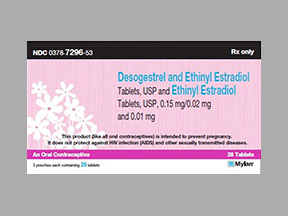Kariva is a limited distribution medication.

Kariva Coupons & Savings Card – Discount Prices from $24.23
Brand for: Desogestrel-ethinyl estradiol
My prescription
Edit
0.15-0.02/0.01MG (21/5), Desogestrel-ethinyl Estradiol (84 Tablets)
Select pharmacy

CVS
$32.09
COUPON PRICE
Walmart
$24.23
COUPON PRICE
Albertsons
$30.78
COUPON PRICE
Walgreens
$35.64
COUPON PRICEKariva savings card
Show this card to your pharmacist
Walmart
$24.23
BIN
ID
PCN
GRP
019876
LH6186A829
CHIPPO
LHX
Powered by
Price history for Kariva (brand) & Desogestrel-ethinyl Estradiol (generic)
84 Tablets, 0.15-0.02/0.01MG (21/5)
Average retail price for Kariva
Average retail price for Desogestrel-ethinyl Estradiol
Average SaveHealth price for Desogestrel-ethinyl Estradiol
Our price history data is based on aggregated prescription data collected from participating pharmacies in America. Our prescription data updates daily to reflect the latest price changes. If you notice a missing data point, it means there wasn't sufficient data available to generate a monetary value for that date.
Over the last 12 months, the average discount price of Kariva is $35.76 using the SaveHealth savings card. That's an average savings of 63.96% on Kariva with our discount card.
*Retail prices are based on pharmacy claims data, and may not be accurate when we don't have enough claims.
Kariva (Desogestrel-ethinyl Estradiol) dosage forms
Dosage Quantity Price from Per unit 0.15-0.02/0.01MG (21/5) 84 Tablets $24.23 $0.29
| Dosage | Quantity | Price from | Per unit |
|---|---|---|---|
| 0.15-0.02/0.01MG (21/5) | 84 Tablets | $24.23 | $0.29 |
What kind of pill is Kariva?
Kariva is a combination oral contraceptive pill that contains two hormones: desogestrel (a progestin) and ethinyl estradiol (an estrogen). It is used to prevent pregnancy.
Do you get your period on Kariva?
When taking Kariva, a combination oral contraceptive, it is common to experience a withdrawal bleed during the placebo week, which may resemble a period. However, the bleeding can be lighter and shorter than a typical menstrual period. Some individuals may also experience changes in their bleeding patterns, including lighter or missed periods, while on Kariva.
What are the benefits of taking Kariva?
Kariva is a combination oral contraceptive pill that offers several benefits. It is primarily used to prevent pregnancy. Additionally, it can help regulate menstrual cycles, reduce menstrual cramps, and decrease the risk of ovarian cysts. Some users may also experience improvements in acne. As with any medication, it is important to consult with a healthcare provider to determine if Kariva is appropriate for individual health needs.
What is the generic name for Kariva?
The generic name for Kariva is desogestrel and ethinyl estradiol.
What is a substitute for Kariva?
A substitute for Kariva, which is a combination oral contraceptive, could be another birth control pill with similar hormonal components. Options may include other low-dose combination pills containing ethinyl estradiol and desogestrel, such as Mircette or Apri. However, it is important for the individual to consult with a healthcare provider to determine the most appropriate alternative based on their specific health needs and medical history.
